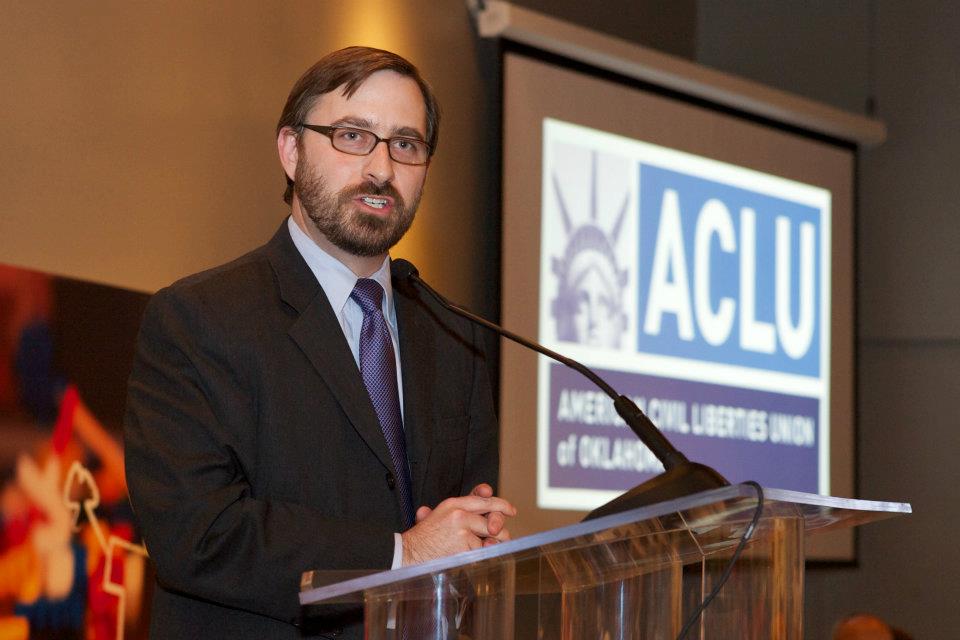Ryan Kiesel, Esq. will be a speaker at CAIR Oklahoma’s 7th Annual Awards Banquet on April 13, 2013
Ryan Kiesel served three terms in the Oklahoma House of Representatives from 2004-2010. During his time in the legislature, Kiesel held various leadership roles and often led the fight against efforts to curb reproductive rights and trample civil liberties. In addition to his service in the legislature, Ryan has filled key roles on local, state and national campaigns. Ryan continues to write and speak on a wide range of political and legal issues, and has been cited by local and national media outlets. Prior to joining the staff of the ACLU of Oklahoma, Kiesel was in private practice with a law firm in Oklahoma City. Ryan also teaches a seminar, Politics and the Law, as an adjunct professor at the University of Oklahoma College of law. Ryan received a B.A. in Political Science from the University of Oklahoma and a J.D. from the University of Oklahoma College of Law. Ryan lives in Seminole with his wife Allison and son Oliver.
Is there a particular defining moment you can remember that pushed you towards civil rights work?
I can’t off the top of my head point to a single defining moment, but I came to learn at an early age to question authority and that public opinion is an imperfect measure of liberty and freedom.
How does your history as an elected official influence what you now do with ACLU?
When Allison and I decided to not seek a fourth term, it did not mean we had lost our commitment to public service. After working for the people of District 28 for six years, it was hard to imagine not waking up as an advocate for the large number of issues that were before me in the House. The opportunity to work for the preeminent defender of civil liberties in Oklahoma has allowed to me continue that service, and in many ways, to become a more effective public servant.
What do you see as the most pressing civil rights issue in our state?
The over-incarceration crisis facing our state stands to ruin budgets, limit investments in education, research, and infrastructure, and squander the lives of those who find themselves attempting, often with futility, to reintegrate themselves back into society after serving their sentences. Our criminal justice system is built on a foundation of political cowardice and special interests, making any effort true reform incredibly difficult. In spite of the difficult task ahead of us, the significant and unsustainable costs of over-incarceration demand our attention.
What has been your greatest source of encouragement while doing civil rights work?
My greatest encouragement is my son, Oliver. While not always the case, the rights secured by one generation are often taken for granted in the next, and courage of conviction becomes commonsense. It is my great hope that the struggles of my time, will secure rights and liberties that will be taken for granted in my son’s, and so on.
Can you speak briefly about how your faith informs your involvement in civil rights?
Faith for me is a search for an elusive truth and a constant examination of self and society. There is a parallel in the pursuit of civil rights and liberties. Both demand persistence all the while knowing your work will never be complete and ultimate resolution rests just beyond the horizon.

